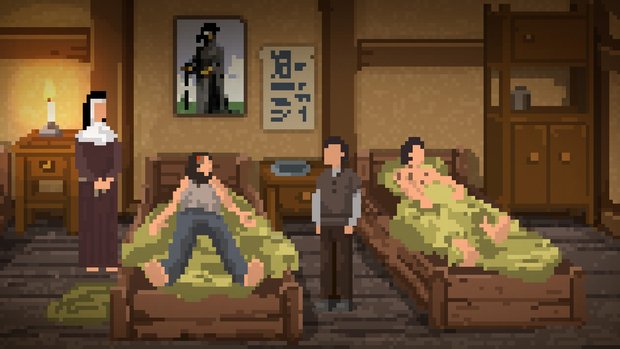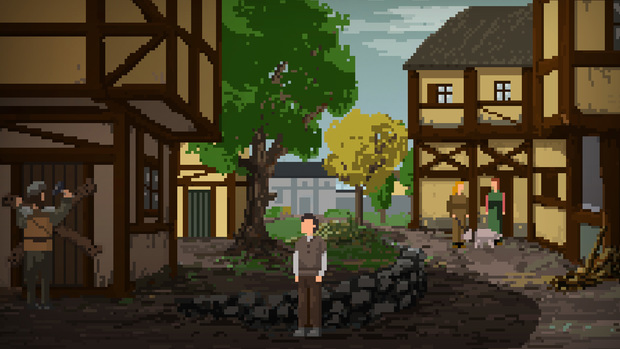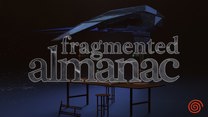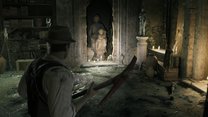The Plague Doctor of Wippra review – Short but infectious medieval slice of life adventure

- 0 Comments
One of the most compelling things about video games (adventure games in particular) is their ability to transport you to another world. Whether you’re a wannabe pirate in a wacky parody of the buccaneering Caribbean, or some everyman swept into a globe-spanning journey of conspiracy and intrigue, the genre’s main strength is pulling you into a world and letting your imagination transport you there. Electrocosmos’s The Plague Doctor of Wippra takes this idea and reins it in, grabbing a small slice of the world in a particular time in history and letting you really feel its weight. You might not think you need to be transported to the time of another epidemic, but the historical accuracy and the poignancy of the narrative will leave you feeling glad for the modern day. The game is short and quiet, but each simple element comes together to leave a mark that is informative and impactful.
The game is set in a small town in central Germany being ravaged by the bubonic plague during the fourteenth century. Wippra is rendered in lo-res chunky pixel art, but the look is effective, elegantly portraying the poor little town with just the right amount of detail to draw your eye to important things in a room. The muted color palette adds to the effect of spending a day in a dreary, impoverished medieval town. Characters are squarish and blocky with no facial features, which also helps contribute to the mood. The lack of any discernable reaction on people’s faces lends a haunting quality to each tragic event that will occur. This bleak atmosphere is further underscored by the mournful strings and piano that play beautifully but sorrowfully in the background.
You start off by living a day in the life of Oswald Keller, a plague doctor recently sent to Wippra to help it through the plague as best you can. The game uses a simplified point-and-click interface, with a cursor that changes as you hover it over things or people you can interact with. Your inventory sits in a bar across the bottom of the screen, disappearing only when it’s replaced by a pixelated font representing either dialogue with other characters, or inner monologue as you examine your surroundings.

After grabbing your supplies, you head out into town where your patients are waiting for you, beginning with a family struggling to survive a life of poverty while facing the ravages of the plague. Many of the obstacles put in your way are simple and serve more to teach you something about the era than present a true challenge to your ingenuity. As a physician you’ll have to learn things like proper bloodletting techniques and how to make a tallow lamp. Some out-of-the-box thinking is occasionally required, but experienced adventure gamers looking to exercise their lateral problem-solving skills might find the experience a bit lacking in challenge. However, I found the simplicity incredibly effective. The majority of puzzles represent facets of medieval life or illuminate something about the state of this world in an immersive way. While many point-and-clicks use puzzles as inhibitors to the story, The Plague Doctor of Wippra has a knack for using them as world-building devices.
As you go about your day, you end up at a church infirmary, treating a series of patients suffering from various ailments with the use of a medical book you carry with you at all times in your inventory. If you use your book on a patient, it will give you instructions on how each affliction was treated or procedure was executed in that period. While all illnesses can be cured without it, the medical book is more than a simple hint guide. Without it, you would just be guessing and fumbling around with your inventory while the other characters correct your improper methods. Or, worse, you might miss crucial steps in healing your patients, which can lead to consequences later on.
Your busy day is full of challenges, as you not only struggle to heal people of varying social strata, your search for remedies also brings you face-to-face with the conflicts confronting the town. An angry, racist mob. A proselytizing priest whose flock is less than friendly to a man of science. A guard whose adherence to local law comes in conflict with the needs of the citizenry. How you handle these, too, will linger in the memories of the characters you meet.
Indeed, once you finish your first day as Wippra’s doctor, you’ll find that many of your actions have had unknown repercussions. This is a good time to note that the game is not for the faint of heart or someone just looking for a relaxing bit of entertainment. It deals with heavy themes, such as illness, death, poverty, rodent infestations, orphanhood, antisemitism, and religious persecution in the era of Protestant Reformation. As the first day comes to a close, the story shifts from one of a simple medical procedural to a short dramatic tale of religion’s storied battles against science and foreign ideas.
The resulting ordeal Oswald Keller endures is a brief but dramatic third act that forces you to reconcile with all your successes and mistakes, as many come back to haunt you in potentially surprising ways. The choices and any mistakes you made throughout the day will compound in the final few scenes, leading to one of three different endings. You can restart from the beginning to try for different endings, but though you can make different choices and may succeed in places where earlier you failed, your path will feel almost entirely the same – save for a few different lines of dialogue – until the final few moments. No matter which outcome you get, each makes a pretty heavy statement about the challenges of the Middle Ages and those who were harmed by them. Regardless of which ending you get, it’s likely to leave you aching deep in your stomach.
While I’m no scholar on medieval Europe, the attention to historical authenticity is so thorough that it left me deeply impressed. Whether you’re picking the right medicinal flower or debating Martin Luther’s 95 Theses with another character, it always feels like you are living in a specific, fully realized time and place. And it happens organically; the game teaches you about history through action and incident, rather than just through long blocks of text. While I had fun and felt the emotional impact of the story, I also like to feel that I came away learning something as well.
Final Verdict
A single playthrough of The Plague Doctor of Wippra takes about an hour and a half to complete, which I found to be a perfect length for what it is. I came to the end feeling like I would play a dozen more games like this, featuring different glimpses into life in other eras and settings. A short adventure is an amazing venue to deliver an immersive slice of history that allows you to feel the emotional impact of the situation. While this game doesn’t spend too much time really developing its characters, I still felt for them. I quickly empathized with the circumstances they were in and the hardships they had to endure. Each person, like each puzzle and each story beat, functions as a world-building tool. When all combined, they created a beautiful and sad little self-contained picture of a far-gone time.
Hot take
While not much in the way of a challenge, The Plague Doctor of Wippra represents, in miniature, everything that adventure games do best: It transports you into a fully realized world, using a limited set of resources (time, puzzles, graphics) to effectively deliver an historical, emotional gut punch.
Pros
- Lo-fi retro pixel art mixed with a thoughtful color palette paints a superb picture of the world and its mood
- Attention to historical detail immerses you into a specific moment in time
- Soundtrack complements the tone and setting perfectly, while also being pleasant to listen to
- Majority of puzzles work to support the setting and story, rather than simply slow progress
Cons
- Lack of challenge makes for a very short game
Matt played his own copy of The Plague Doctor of Wippra on Windows PC.











0 Comments
Want to join the discussion? Leave a comment as guest, sign in or register.
Leave a comment